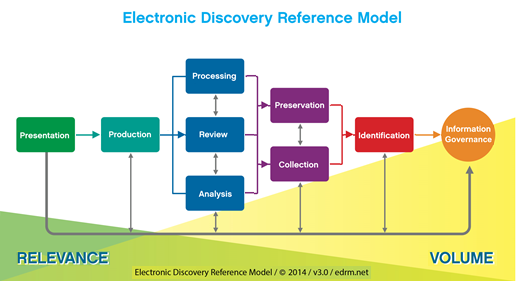Plaintiff Once Again Sanctioned with an Adverse Inference Instruction, But Still No Complete Dismissal: eDiscovery Case Law

In Lynn M. Johnson v. BAE Systems, Inc. et. al., Civil Action No. 11-cv-02172 (RLW) (D.D.C. May 27, 2015), District of Columbia District Judge Robert L. Wilkins granted the defendants’ motion for summary judgment with respect to the plaintiff’s claims for negligence, battery, and defamation, but chose to “impose lesser, but nonetheless severe, sanctions” in the form of an adverse inference instruction for her remaining claim for intentional infliction of emotional distress.
Case Background
The plaintiff, a U.S. government employee deployed in Iraq, sued the defendants for actions taken by its employee during a project that they worked on together, alleging “severe physical and emotional health problems”. During discovery, the defendant requested medical records in preparation for an expert witness’s examination of the plaintiff – she provided the defendant with falsified medical records which she had edited in an effort to eliminate references to health issues that predated her deployment to Iraq. The defendant filed a motion for sanctions seeking dismissal and the Court granted in part and denied in part the motion, sanctioning the plaintiff and her counsel with fees and an adverse inference instruction.
Then, on September 25, 2013, the defendant requested a forensic examination of the plaintiff’s computer. That evening, the plaintiff contracted with a local computer technician who performed various maintenance functions, which included running a program called CCleaner that is capable of permanently deleting files. Subsequent forensic analysis showed that several Microsoft Outlook .pst email storage files were placed into the recycling bin and deleted on September 27. The technician testified that the plaintiff did not tell him she was in litigation, she did not ask him not to delete anything from her computer and he did not place the Outlook files in the recycle bin. The defendants also requested Facebook messages, and the court found evidence that the plaintiff had tampered with those messages, as well.
Judge’s Ruling
Regarding the latest activities by the plaintiff, Judge Wilkins stated that “The Court finds by clear and convincing evidence that Ms. Johnson destroyed, attempted to destroy, or caused to be destroyed files on her computer with potential relevance to this case”, noting that “under no circumstances should Ms. Johnson have contracted with a computer technician to ‘clean up’ a computer sought for forensic imaging, particularly without making a disk image or even informing the technician of ongoing litigation. That she chose to do so is very troubling.” Judge Wilkins expressed similar concern by the plaintiff’s failure to produce Facebook messages from earlier than February 2013.
Summarizing the behavior by the plaintiff, Judge Wilkins stated “Over the course of this suit, Ms. Johnson has repeatedly obfuscated the truth. She has altered medical records, contradicted herself in depositions and testimony before the Court, and failed to preserve and produce relevant documents during discovery.” Still, Judge Wilkins could not bring himself to dismiss the case, stating “Although it is an exceedingly close question, the Court concludes that Ms. Johnson’s conduct does not merit this most serious of remedies.”
As a result, Judge Wilkins awarded the defendant an adverse inference instruction sanction against the plaintiff, awarded the forensic expert’s fees spent by the defendant’s expert and dismissed the plaintiff’s claims for negligence, battery, and defamation.
So, what do you think? Should the repeated violations by the plaintiff have led to full dismissal? Please share any comments you might have or if you’d like to know more about a particular topic.
Disclaimer: The views represented herein are exclusively the views of the author, and do not necessarily represent the views held by CloudNine. eDiscovery Daily is made available by CloudNine solely for educational purposes to provide general information about general eDiscovery principles and not to provide specific legal advice applicable to any particular circumstance. eDiscovery Daily should not be used as a substitute for competent legal advice from a lawyer you have retained and who has agreed to represent you.

